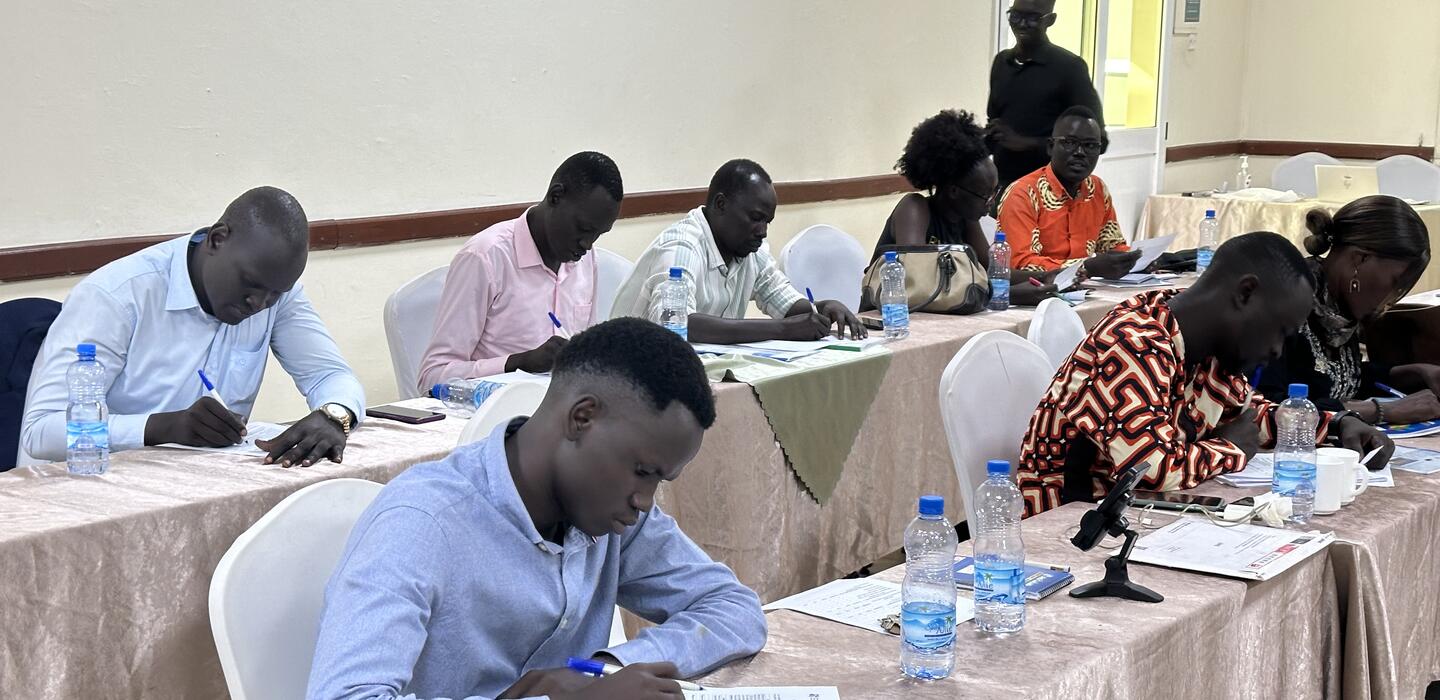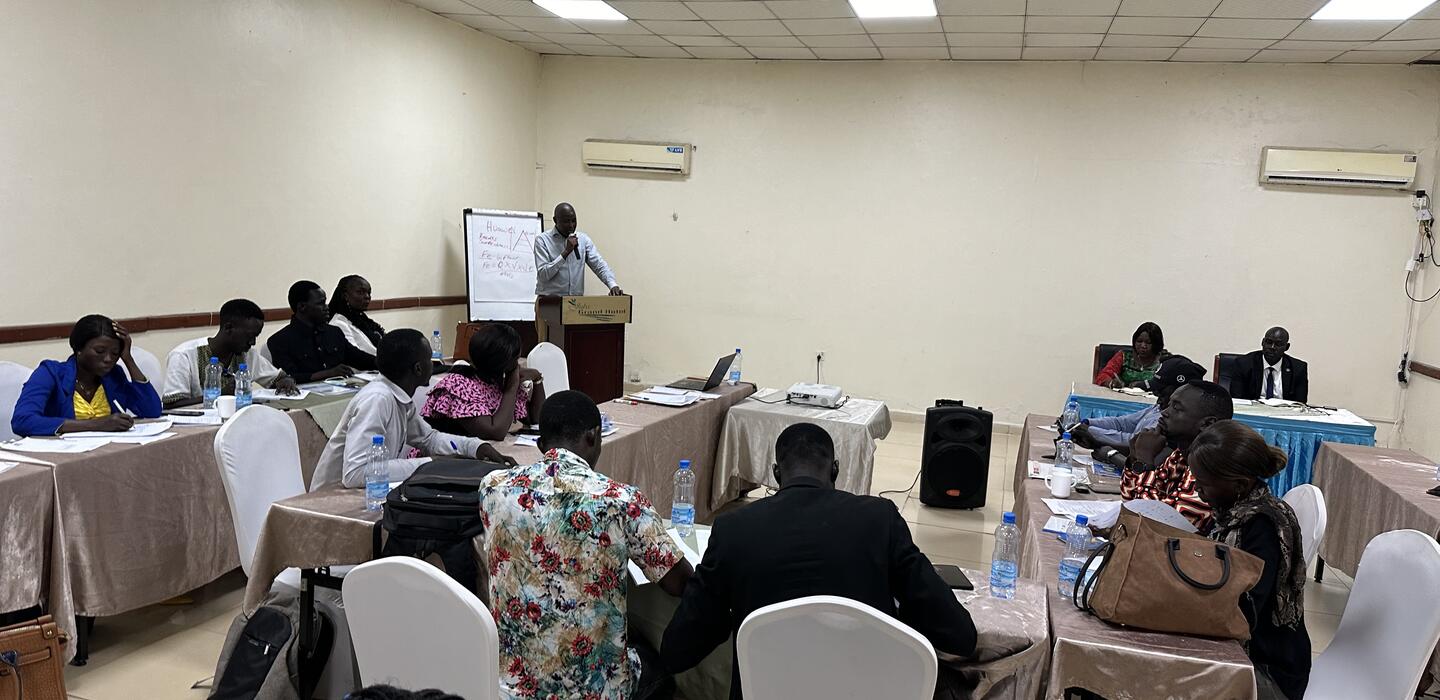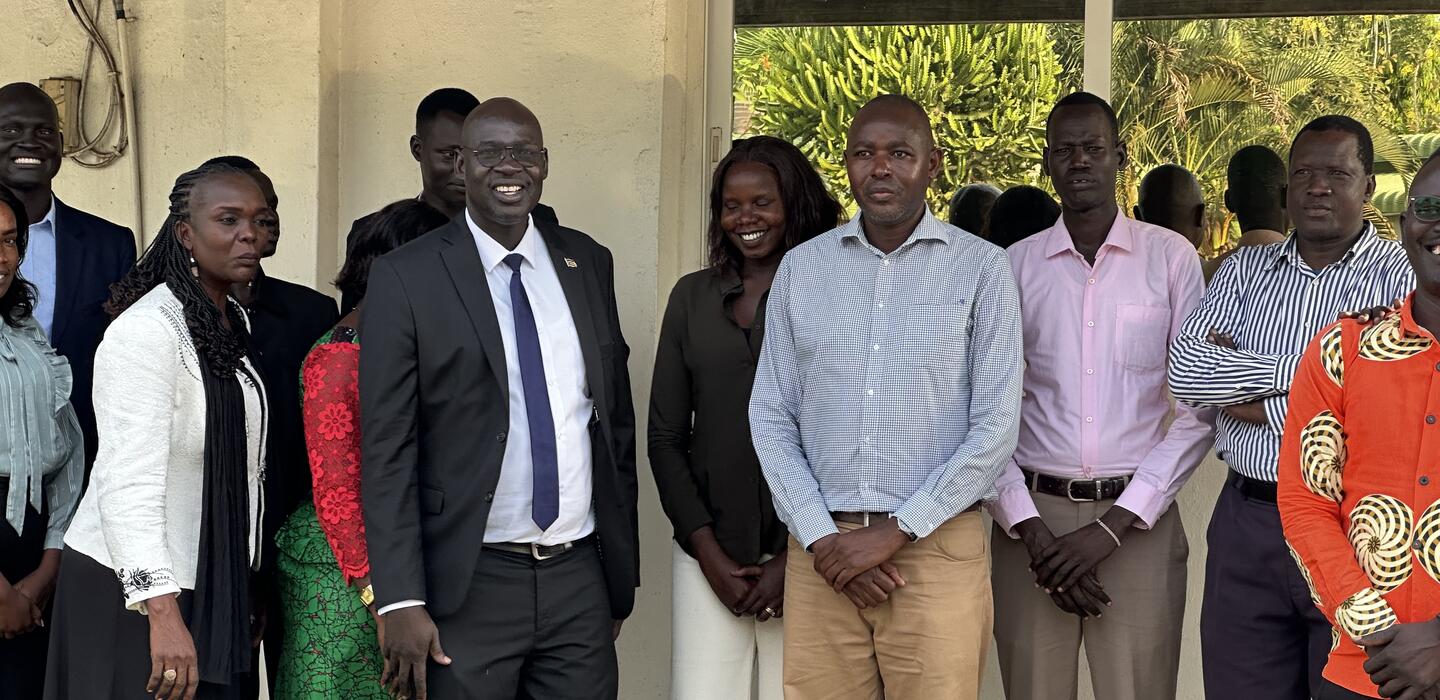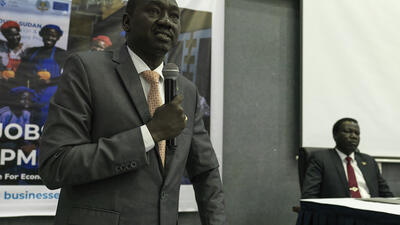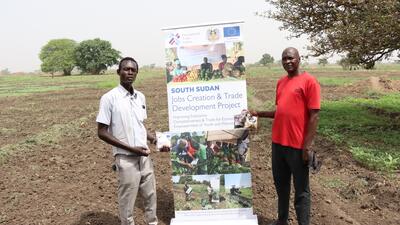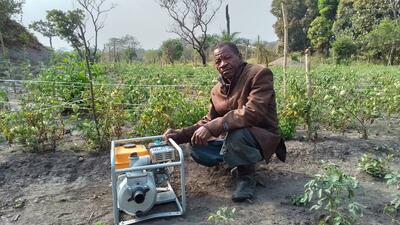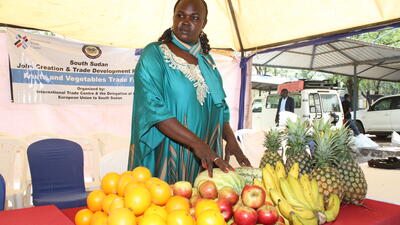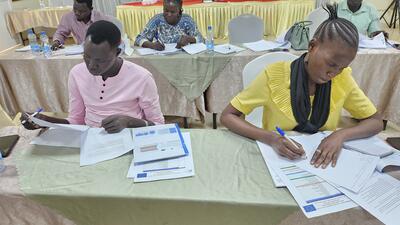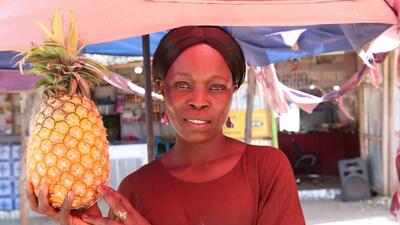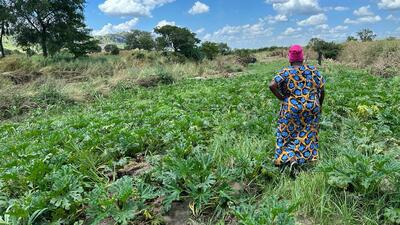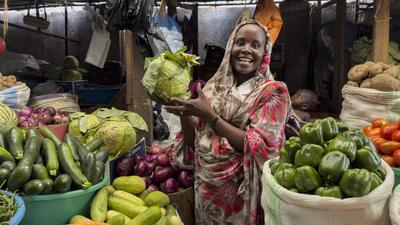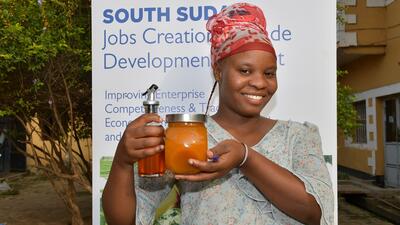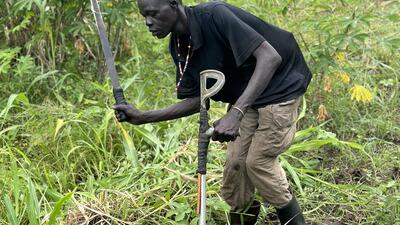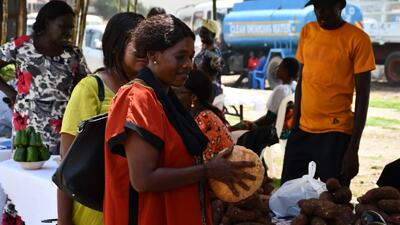


South Sudan National Bureau of Standards receives laboratory training
The International Trade Centre (ITC) facilitated the training for professional staff of the South Sudanese National Bureau of Standards (SSNBS) from 19-23 February 2024.
The training focused on the international standard for testing and calibration laboratories, known formally as ISO/IEC 17025. According to the International Organization for Standardization (ISO), this standard sets out the general requirements for the competence, impartiality, and consistent operation of laboratories. This ensures the accuracy and reliability of their testing and calibration results.
The SSNBS wants to implement these best practices by aligning the country’s testing laboratories with the standard.
Ten women and 13 men from the SSNBS joined the training as part of the South Sudan Jobs Creation and Trade Development Project funded by the European Union.
Implementation and subsequent accreditation to the ISO/IEC 17025 standard will immensely benefit South Sudan. Adhering to the standard gives confidence in the country’s laboratory operations and their ability to generate valid results. That opens the door to cooperation with other agencies. As other parties accept South Sudanese lab results, they can share more information and experiences on testing. Worldwide recognition of test results allows South Sudan to harmonize standards and procedures with laboratories in the region and other parts of the world.
This training will be followed by a series of sessions to ensure full acceptance and accreditation for the SSNBS.
In closing the training, the SSNBS chief executive officer, Dr Kuorwel Kuai, thanked ITC for its continuous support. He expressed his hope that such initiatives will strengthen South Sudan’s ability to raise food safety standards across the country.
About the Project
The International Trade Centre’s South Sudan Jobs Creation and Trade Development project aims to increase the competitiveness of micro, small and medium-sized enterprises (MSMEs) and employment opportunities for the South Sudanese population engaged in the fruit and vegetable subsector.
The European Union-funded project contributes to addressing the value addition, competitiveness, job creation and trade development challenges of South Sudan. Specifically, the interventions of the project are expected to improve productive capacities and compliance to standards for MSMEs, increase market linkages for MSMEs and enhance employability and entrepreneurship capacity for the South Sudanese labour force, focussing on youth and women.




